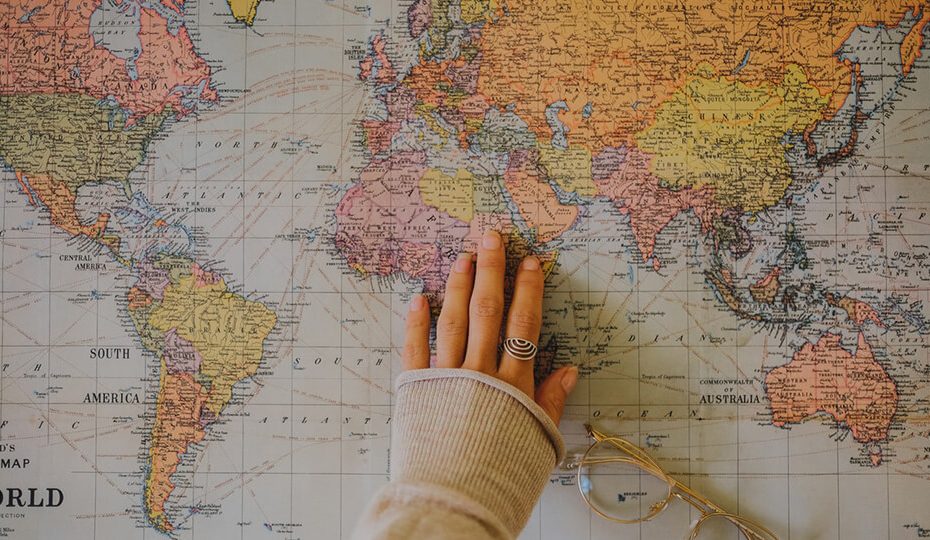Approximately ten years ago, when I started my journey in the field of international development, I didn`t actually know what this concept entirely entails, what are the existing structures and which are the leading organizations and institutions operating in this field. Having a clear understanding of the idea and knowing about the most relevant actors in the sector could help you design a strategy before jumping on to something which could change your life completely.
Approximately ten years ago, when I started my journey in the field of international development, I didn`t actually know what this concept entirely entails, what are the existing structures and which are the leading organizations and institutions operating in this field. Having a clear understanding of the idea and knowing about the most relevant actors in the sector could help you design a strategy before jumping on to something which could change your life completely.
Having an overview of the international development field will help you explain to your family, friends, and other professionals that you are actually not on a volunteering trip, playing with children, or enjoying the natural beauties of a country, usually from the Global South.
As a matter of fact, International Development, Disaster Relief, and Humanitarian Aid sectors are highly competitive, which requires high level technical, socio-emotional, and cultural skills.
But what is actually International Development? You will find related concepts such as Development Cooperation and Development Aid, where efforts are usually long-term project-based solutions, which helps developing countries build their capacities to resolve a specific socio-economic and financial problem. The ultimate goal for all these interventions is to create sustainable solutions for countries or communities with conditions in place that will make a project continue without foreign interference.
On the contrary, the two sister-concepts,Disaster Relief and Humanitarian Aid, are providing short-term support after a severe incident, natural disaster, war, and conflict.
The good thing is, there are some areas which are common in all the sectors mentioned earlier, making it easier for you to move between them, like Water and Sanitation, Education, Health, Shelter, Livelihoods, Human Rights, Finance, among others.
Having a strategy before embarking on the international development agenda is advisable and recommended. Here are a few tips what you need to consider:
- Development, disaster relief, or humanitarian work? The first option might bring you into the world of development agencies and for-profit organizations with different values and approaches and more stable working environments.
- Think about disaster relief and humanitarian work as something temporary, with the possibilities of frequently changing countries and duty stations.
- I would advise you to choose a specific region or country when deciding where do you want to work in the future. Many people tend to get jobs in the state or region where they already have work experience, and this is due mainly because of knowing the local context – which is very attractive for an employer – but also because of the networks they have in the respective country.
- Closely related to the above are the languages you speak. The most important languages you will use are English, French, Spanish, Russian, alongside the local languages.
- I highly recommend mapping out the existing organizations and institutions which work in your chosen field, country, and region. Check out the UN system, together with its agencies, the multilateral institutions, official development agencies, development banks, non-governmental organizations, charities, and if it is your case, the profit sector.
- For example, UN OCHA, the World Bank and the EU are leading the disaster relief sector, while humanitarian assistance is coordinated mainly by UN OCHA, UNDP, UNICEF, and the WFP.
- The development agencies, like USAID, DFID, SIDA, GIZ, and others, are leading in technical cooperation interventions, like energy, providing capacity building to government institutions` staff, and working mainly on public policy issues.
- An essential aspect I want to point out is about thinking strategically about your future. Will you have the necessary and relevant skillset to return to your home country, or you will have to change your career entirely? Will you have transferable skills you could easily use in different types of organizations, countries, and working areas? I am hearing more and more voices from individuals who decided to return back to their home countries but found themselves in situations of being rejected continuously because their skill set is not needed for the jobs they applied.
Finding your place in the international development field takes time, perseverance, and implies continuous learning. Still, if you plan and strategize, it can be a smooth process, providing you with unique, purpose-driven professional and personal experiences.


